Five Buildings Collapse In Iran's Capital Tehran
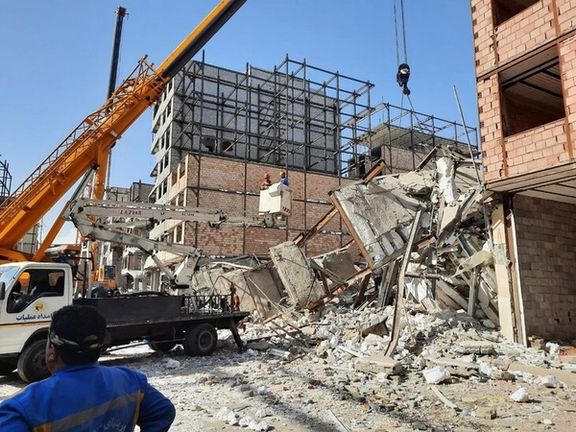
Five buildings that were under construction have collapsed in southern Tehran, killing at least three people and injuring more than 10 others.

Five buildings that were under construction have collapsed in southern Tehran, killing at least three people and injuring more than 10 others.
Tehran's Firefighting Organization said Sunday that four police officers and two municipality employees as well as a few other people had been trapped under the rubble.
Three dead bodies, including Major Hossein Esmaili and Colonel Yazdan Soleimanabadi, have been recovered from the debris. The third victim, an elderly man, has not been identified yet while rescue operations are still underway at the site. At least two other people are still trapped.
The two police officers had been overseeing the legally-ordered demolition of a building, when five buildings nearby collapsed, and they were killed under the rubble.
There are at least hundreds of high-risk buildings in Tehran, but authorities refrain from officially announcing the list saying it "would worry the people". However, a list of 129 unsafe buildings was published by Ensaf News last year. IRNA state news agency reported last June that there are currently "33,000 unsafe buildings" in Tehran.
The Plasco Building was a 20-story high-rise that collapsed on January 19, 2017 after it caught fire. Twenty firefighters were reportedly killed and at least 70 others were injured by the collapse.
The problem is not limited to the capital. Last year in May, a 10-storey building in the southern city of Abadan collapsed, burying more than 80 people under the rubble, with 42 bodies recovered, an incident described by pundits as “a miniature symbol of the dynamics prevailing in Iran's government."
Soon after the collapse it became apparent that the owner and builder, Hossein Abdolbaghi, was a well-connected businessman who had disregarded regulations and building codes, backed by officials, who might have had their own financial interests.
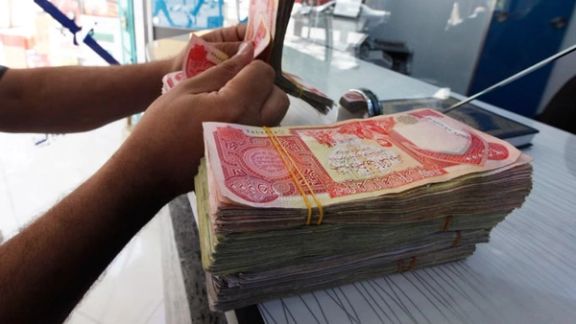
Iran’s Oil Products Exporters Union has reacted to the recent accusations made by an Iraqi MP regarding the smuggling of dollars to Iran through Argentina.
Hamid Hosseini, the spokesperson of the Iranian Oil, Gas, and Petrochemical Products Exporters Union, said Friday that this was a "very serious accusation" and called for accountability from the parliament, parties, and the central bank of Iraq.
Muhammad Nuri Aziz, a member of the Iraqi parliament, said on a television show last week that Iraqi Prime Minister Mohammed Shia al-Sudani and the country’s central bank are aware of the schemes Iran uses to get hold of US dollars it desperately needs amid US sanctions. The lawmaker noted that the smuggling started during Mustafa Al-Kadhimi's term as prime minister and still continues. Without providing any context or details, the Iraqi lawmaker alleged that Iran prints Iraqi dinars in Argentina, exchanges the money to US dollars in Iraq, from where it is smuggled to Iran by trucks.
The Iranian official said warned that given the recent alignments of some Iraqi officials with the United States against Iran, “it appears that these allegations may pave the ground for more serious disputes in the future.”
“This is a style of accusation by Iraqi nationalists and Ba'athists,” he claimed, accusing an Iraqi politician who happened to criticize the Iranian regime, without offering any evidence.
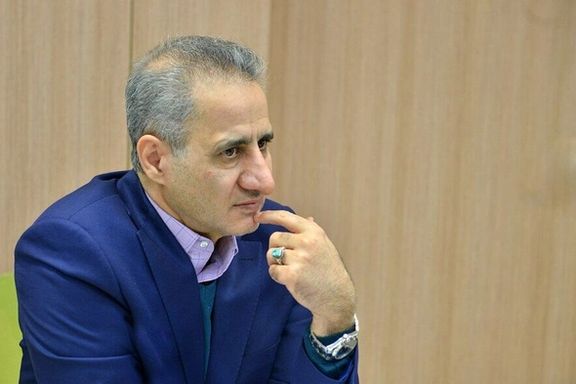
Hosseini emphasized that Iran has been a strong supporter of Iraq, contributing significantly to its security and stability. He urged the Iraqi authorities and parties to address this issue and demanded that the Iranian embassy take action in response to the accusation. “If someone in the Iranian parliament had said such a thing, all of Iraq would have taken a position," he noted.
A source with the Iraqi government told Iran International that following the recent restrictions on Iraqi banks by the US, a portion of the smuggling is being carried out through shell companies, electronic travel cards, online shops, exchange offices, and even suitcases.
Reports about the transfer of $165 million to Iran within less than a month by just one exchange office led authorities to discover dozens of similar cases by other exchange offices.
The credibility of the Iraqi banking system has been tarnished due to the Islamic Republic's influence, and US financial restrictions have tightened on Baghdad because evidently all Iraqi banks have had interactions with the Islamic Republic.
Late in July, 14 Iraqi private banks sanctioned by Washington over helping to siphon US dollars to Iran said they were ready to challenge the measures and face audits and called on Iraqi authorities to provide assistance.
The US barred the Iraqi banks from conducting dollar transactions as part of a wider crackdown on dollar smuggling to Iran. The latest sanctions, along with earlier ones, have left nearly a third of Iraq's 72 banks blacklisted, two Iraqi central bank officials said.
The dinar has been falling against the dollar since the New York Federal Reserve imposed tighter controls on international dollar transactions by commercial Iraqi banks in November to halt the illegal siphoning of dollars to Iran.
Under curbs that took effect in January, Iraqi banks were required to use an online platform to reveal their transaction details. But most private banks have not registered on the platform and resorted to informal black markets in Baghdad to buy dollars.
Iran International revealed in May that an aide to former IRGC’s Quds force commander Qassem Soleimani, is a key figure in money laundering for Tehran. Iran International also reported details about the inner workings of a Quds force unit tasked with smuggling money from Iraq to Iran, proving that the Islamic Republic’s embassy in Iraq is also involved in money laundering operations aimed at funneling revenues from oil and gas exports back to Iran.
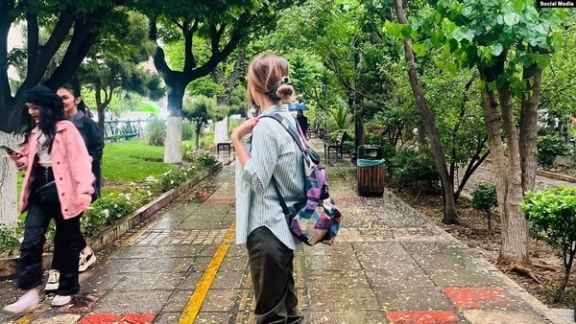
The municipality of Tehran plans to dispatch 400 of its personnel as hijab enforcers to subway stations of the capital.
Faraz Internet Daily reported on Sunday that the roles of these new hijab enforcers include warning women against removing the mandatory headscarves, preventing their entry without "proper" attire, and handing them over to law enforcement authorities if they disregard the rules.
The daily said these enforcers, who have been trained by Tehran Municipality Security Unit, will receive a monthly salary of 120 million rials (about $240), almost twice as much as the minimum wage in Iran.
According to the report, Tehran Municipality has earmarked a $100,000 monthly budget for hijab enforcement at subways stations.
The capital’s metro stations have been a hijab battleground since the municipality formed a special uniformed security unit to stop unveiled women from passing through the ticket gates earlier in the year.
The uprising that was sparked by the death in police custody of Mahsa Amini in September 2022 has made it increasingly difficult for the clerical regime to enforce the mandatory Islamic dress code. Since the beginning of the ‘Women, Life, Liberty’ movement, tens of thousands of girls and women have shed their compulsory hijab.
To avoid the public backlash over the violent enforcement of hijab laws, the Islamic Republic has recently begun implementing a wide range of measures from public humiliation tactics to using traffic cameras to identify women without hijab.
Moreover, heated debates over a new bill about how to deal with women who refuse to observe compulsory hijab continues inside and outside the Iranian parliament. The bill mainly relies on cash fines to force women to wear the hijab.
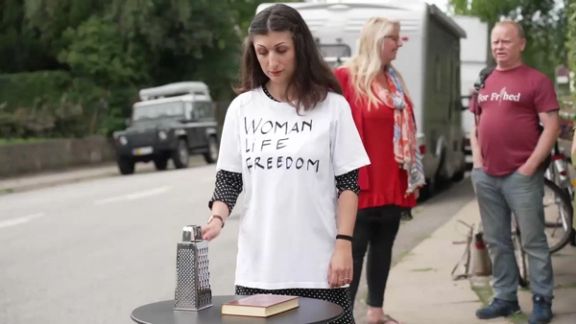
An Iranian born artist shredded a copy of Islam’s holy book, the Quran outside the Iranian embassy in the Danish capital Copenhagen on Saturday.
Firoozeh Bazrafkan, who has staged similar symbolic performances several times in the past, said the deliberate shredding of the Quran was a commentary on the Iranian regime’s hypocritical demand for respect for the holy book while it fails to show any respect for women’s rights.
She dedicated her performance to Iran’s women and men who continue to defy the oppressive regime, and extended her tribute to citizens and politicians worldwide who support the Iranian people’s quest for a dignified life.
Bazrafkan has staged several performances against the Islamic Republic and its religious ideology. The artist and blogger is known for including nudity, shredded Qurans, blasphemy and Nazi hymns in her works.
In an installation art piece dubbed "Blasphemy?” showcased in a gallery in 2014, she ran a copy of the Quran through a shredder and placed it on a prayer mat. Later in that year, she released a video, in which she stripped naked and put her clothes over the Quran, while another artist, Kasper Norby Lund, recited texts from the book.
In recent weeks, copies of the Quran have been burnt on several occasions in Sweden and Denmark. The Iranian government has strongly condemned the desecrations and officials have threatened the perpetrators with severe punishment.
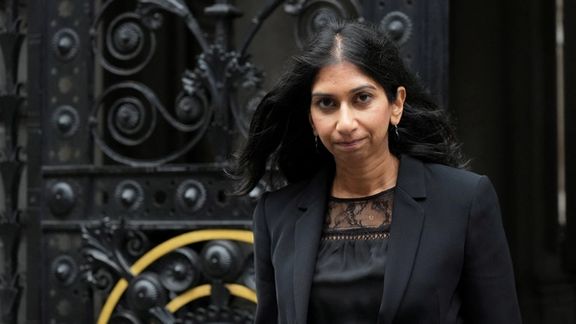
Britain's home secretary Suella Braverman says Iran's Revolutionary Guard poses the a serious risk to UK’s national security amid fresh evidence of its reach.
As pressure is growing on the British government to proscribe the IRGC, Home Secretary Braverman fears that the outfit is stepping up its activities, attempting to recruit members of organized crime gangs to target opponents of the regime.
The Sunday Times quoted a source close to the home secretary as saying that “The Iranian threat is the one that worries us the most.”
“It’s a big issue because they are getting much more aggressive, and their appetite is increasing. They are very defensive to anyone challenging their regime and just want to stamp it out,” the source said, underlining that “They are increasing their agitation.”
In February, Security Minister Tom Tugendhat told Parliament that the Iranian regime was behind 15 credible threats to kill or kidnap British citizens or people based in the UK in just over a year.
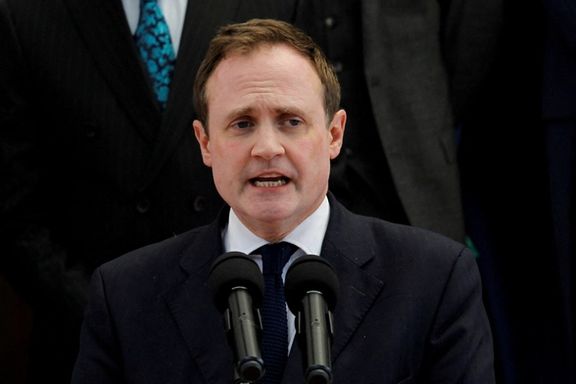
However, last month, the government again rejected calls to proscribe the IRGC as a terrorist group in favor of expanding the criteria by which its supporters and affiliated companies can be put under sanctions. The UK Foreign Office seems worried that designating the IRGC as a terrorist group could permanently harm diplomatic relations.
The new sanctions regime would allow ministers for the first time to sanction Iranian officials and individuals for their activities both Iran and in the UK, where they seem to have increased their sway.
The Home Secretary’s warning came just after Iran's IRGC commanders were revealed to be spreading extremist antisemitic propaganda in UK universities via a London student organization. The Sunday Times disclosed earlier in the week details of the close relationship between the Islamic Republic and the Islamic Students Association located in a former Methodist church in west London.
The association was set up to promote the religious and political philosophy of Ruhollah Khomeini, the founder and first Supreme Leader of the regime who ruled until his death in 1989.
The center hosts discussions with Iranian government officials and hardline clerics at Kanoon Towhid, an old church in Hammersmith that carries a portrait of Khomeini at its altar, as well as the Islamic Republic's flag.
According to an investigation by the Jewish Chronicle, since early 2020, at least eight IRGC leaders addressed British student audiences, trying to radicalize them. The speakers, some of whom are sanctioned by Britain for human rights abuses, have been involved in suppressing dissent within Iran.
Recordings obtained by media outlets exposed statements from commanders like Saeed Ghasemi, who claimed the Holocaust was "fake" and advocated for violence against Jews in “an apocalyptic war.”
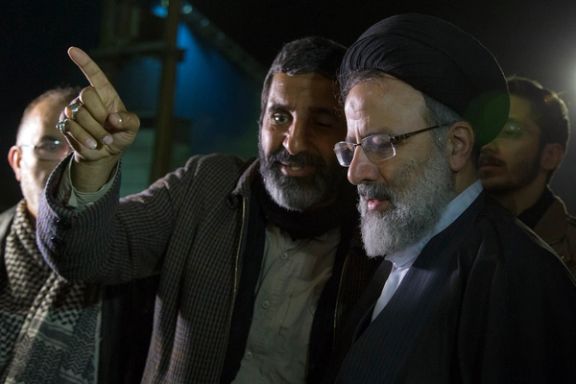
Another IRGC man who delivered lectures at the center was Hossein Yekta – a commander of IRGC’s plainclothes agent during crackdown on protesters – who claimed Jews "created homosexuality" and urged his audience to "raise the flag of the Islamic revolution, Islam, and martyrdom."
The association's internal elections are also observed by representatives of the Supreme Leader Ali Khamenei. In January this year, Mohammad Hossein Ataee Dolatabadi, a former chairman of the association and a master's degree student at the University of Bradford, made a trip to Tehran, where he met Khamenei. He later received a 'blessed' keffiyeh, which is a traditional Arabic headdress, as a gift, a token of his allegiance to Iran’s ruler.
Dolatabadi says he is no longer the chair of the organization since October 2022. Nonetheless, he remains the chair of its parent organization, the Union of Islamic Students Associations in Europe, according to Khamenei's official website.
The association's Telegram channel had reportedly made posts praising Qasem Soleimani, the former IRGC Quds Force commander who was killed in a US air strike in January 2020.
Alicia Kearns, the chair of the Foreign Affairs committee, condemned the organization's activities, stating, "To broadcast the jihadist and deeply antisemitic ideas of senior members of the IRGC to students across Britain is a brazen act of radicalization. We must pursue and prosecute those responsible for trying to incite violence here in the UK."
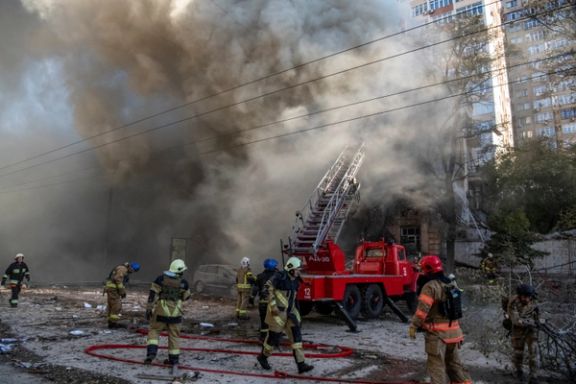
Russia used 27 Iranian-made drones and 30 missiles to attack large swaths of Ukraine early on August 6, as a conference took place in Saudi Arabia exploring options for peace.
The Russian attack came in two waves. First, missiles were fired at various targets late on August five, and the second wave followed on August 6, when the Iranian drones were used.
Ukrainian officials said all 27 Shahed 136 and 131 drones were shot down by air defenses but some of the missiles fired from the Black Sea and the Caspian region got through.
Russia regularly uses the Iranian drones during massive missile attacks to overwhelm Ukraine’s air defenses, although Kyiv’s military has learned how to shoot down most of the relatively slow-moving Unmanned Aerial Vehicles (UAVs).
Iran has supplied hundreds of the killer drones to Russia since mid-2022, but insists it is neutral in the war and is not arming Russia.
US Defense Intelligence Agency (DIA) has decided to show foreign officials “undeniable” evidence of the Iranian origin of the drones shout down over Ukraine NBC News reported on Friday.
Washington first warned about Tehran’s plan to supply attack drones to Russia in July 2022 and in October it announced that indeed Moscow had started to use Shahed kamikaze drones against Ukraine. In February the DIA issued a report saying that analysis confirmed Russia’s use of various lethal Iranian unmanned aerial vehicles (UAVs) against Ukraine.